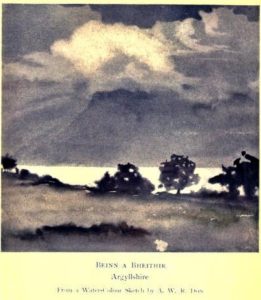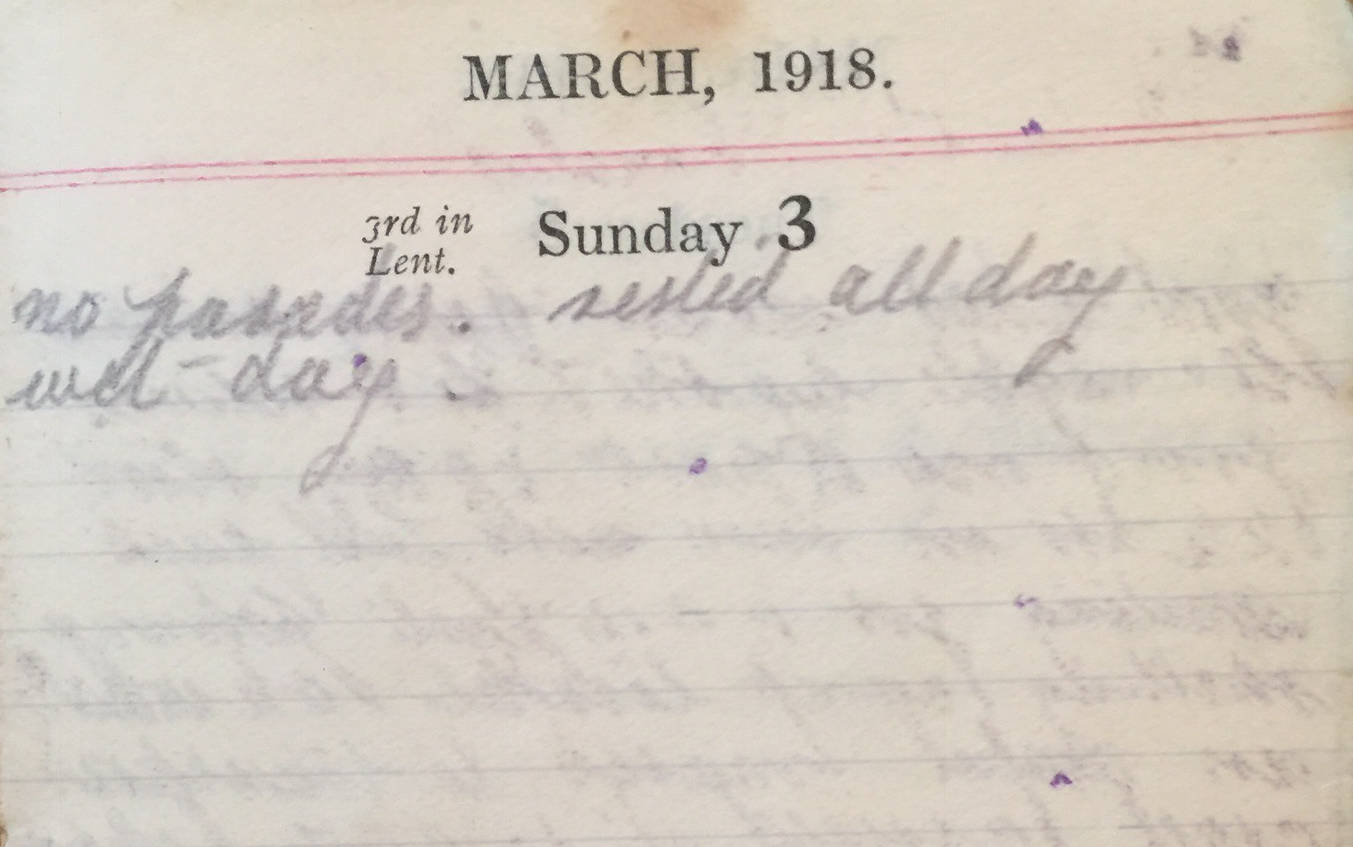Sunday March 3rd, 1918
No parades, rested all day. Wet day.
66th Brigade Resting
The whole Brigade has been relieved from the front line and is now dotted around the countryside. When the 13th Battalion of the Manchester Regiment was on the front and on the reserve lines, its four companies were separated, each servicing a different part of the line. Now they are all together at Olasli. The Battalion diary provides details of the other three battalions’ locations. Brigade HQ is at Buck Hill.
As happened last time the Battalion came off the front line in early January, the priorities are resting and cleaning. Getting rid of the mud and the fleas (in addition to the unwanted attention of the enemy) must be a relief for the men of all ranks. The Battalion diary talks about baths and makes them sound quite luxurious. This is different to the recollections of Staff Sergeant William J Lee of RAMC who stated that ‘the ration for a bath once a week was half a petrol can (of water).’ ¹
Anti-Malarial Treatment
Once again, the Battalion will be starting a course of anti-malarial treatment. Draining swamps, pouring oil on still water, issuing netting and quinine were important activities for the BSF. Malaria was a huge drain on the army – not only in respect of sick troops but also on the infrastructure needed to nurse and convalesce them. Read more here.
Malaria was also an efficient killer. A soldier could be fine one minute, have a raging fever the next and be dead within days. Even those who seemed to recover sufficiently to rejoin their Battalions, could relapse quickly with dire consequences.

Archibald Don, from Angus in Scotland, was a medical student at Cambridge who gained a commission with the Black Watch and served in Salonika. He suffered his first bout of malaria in July 1916, recuperated in Malta and returned to his company in late August. He relapsed within days and died in early September.
This sketch of the Scottish Highlands was painted by him. Archibald was not only an artist but a thoughtful letter writer and diarist. About other friends who had died in the war, he wrote, ‘Nothing in life is repeatable. What is sad is when future happiness and effort and undeveloped powers are cut off…. and yet things will go on: human life is not thrown back by death, and all sorts of new qualities have appeared in those who might otherwise have stood still.’ ²
His brother Robert, also with the Black Watch in Salonika, was to be killed in combat only months later, in early May 1917.
13th (Service) Battalion War Diary – 3rd March 1918 – No 1 Sector, Olasli
The Brigade is now situated as follows. 9th South Lancs at Hill 323. 12th Cheshire Regt at La Marraine, 8th KSLI at Hajdali and13th Manchester Regt at Olasli. Brigade HQ at Buck Hill. Evening prayer in the Canteen Marquee at 15:30 hrs. Battalion resting and cleaning. ?? is practically unlimited and baths are going all day, one set and a boiler for each double company. Programme of training 7th to 13th March issued (Appendix I). A 24 day course of anti-malarial treatment will commence tomorrow for all ranks. The Canteen will be operational from 12:00 to 14:00 hrs and from 18:00 to 20:00 hrs daily, Sunday included.
References & Further Reading
¹ ‘Expenses Paid’ a memoir by William J. Lee, 21080, Staff Sergeant RAMC (1915-19) in a collection of the Salonica Campaign Society
² ‘Archibald Don – A Memoir’ (1890-1916) Edited by Charles Sayle, (published John Murray, 1918). Digitized by the Internet Archive in 2007.


